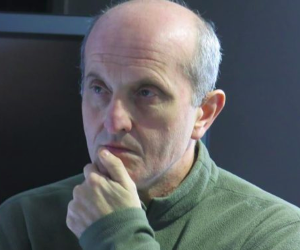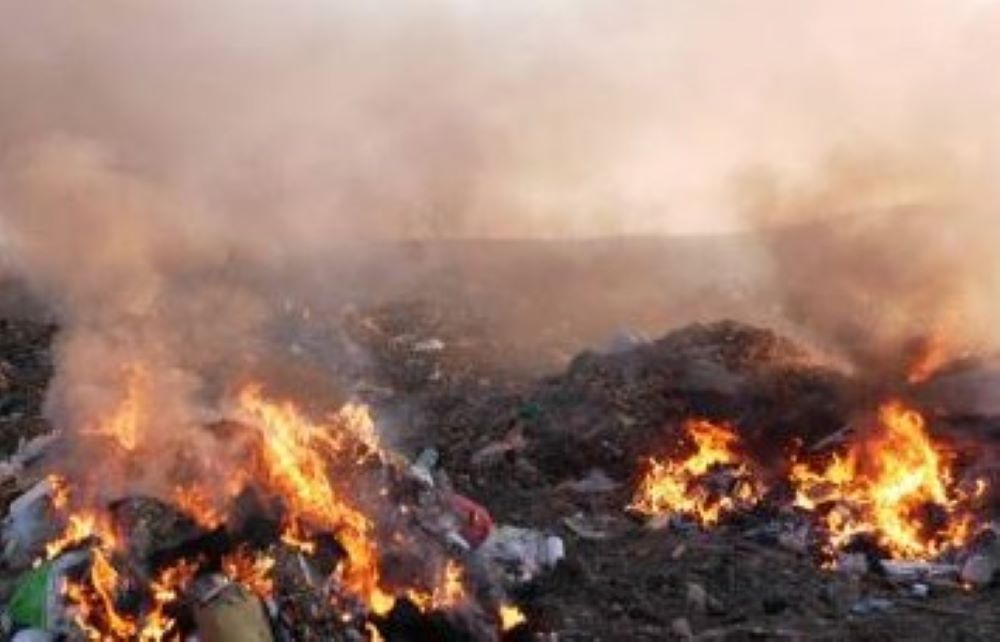Every summer, landfills across BiH are ravaged by fires. The stench from the city landfill in Sarajevo is suffocating a third of the city’s population.

Anes Podic
Waste disposal in BiH comes down to garbage collection from city streets. This applies to both the poorest municipalities as well as the capital. The fact that thousands of tons of waste, even the most deadly types, will end up in nature – and eventually, through water and food, in our bodies – has absolutely no significance for the current authorities, not even for the opposition. And this has been the case for almost three decades.
Every summer, landfills across BiH are ravaged by fires. The stench from the city landfill in Sarajevo is suffocating a third of the city’s population.
All smoke is a health hazard, but the products of these fires pollute the environment in the long term.
The landfills store mixed municipal waste, the ignition of which releases various toxic gases, from sulfur dioxide and soot to mercury, all making the air extremely polluted. Compounds formed by burning plastic waste, dioxins and furans are particularly hazardous.
Dioxins are so-called permanent organic pollutants, which means that they take a long time – decades – to decompose when in the environment. They are very toxic and can cause cancers, reproductive and developmental problems, damage to the immune system, they accumulate in food chains and concentrate in the fatty tissues of animals.
The consequences of landfill fires are dramatic, but the BiH authorities do not care. Landfill fires usually end up extinguishing themselves, while there is virtually no monitoring of the harmful effects of such fires.
Even after the abundant international assistance, both financially and in expert knowledge, the issue of municipal waste disposal in BiH is in complete disarray.
Most municipal waste landfills are ordinary wastelands. There are decisions of municipal councils declaring them landfills, while none of the so-called regional landfills meets the requirements to be called a sanitary landfill which doesn’t harm the environment.
The disposal of municipal waste has not been resolved in a single piece of BiH territory. There are also numerous illegal landfills, which are created primarily in areas where local government is lazy, ignorant and incompetent – there is no organized removal of this type of waste at all in a third of BiH. The local populations have no choice but to leave their waste in one of the many illegal landfills. Illegal landfills sometimes occur even where there is waste collection, but as a result of poor organization, insufficient infrastructure and virtually non-existent penal policies for violators.
There is no landfill for hazardous waste in BiH. It is technically regulated by policy, but due to insufficient inspection capacity, low fines, bribable customs officers and other civil servants, there are no guarantees that the waste will not end up in one of the many illegal landfills, in the forests, meadows or rivers.
So-called “Death Triangle” is the area between the cities of Naples and Caserta in southern Italy where people are forced to live in the midst of waste, inhale toxic fumes from burning landfills and drink poisoned water due to illegally disposed waste. Everything was under the control of the mafia, with “sorted paperwork”.
With time, whole hills of waste sprang up. Cattle grazed there, there were springs of water, children would play; soon, inexplicably, people began to die.
Is a similar scenario at work in BiH? We will only find out in decades’ time about today’s deadly connections between local criminals and corrupt politicians, for whose sake we are exposed to the toxic effects of hazardous waste.
Anes Podić, founder of “Eco Action”, an organization that deals with the problems of ecology and social justice



Leave A Comment